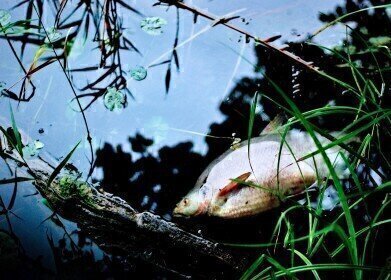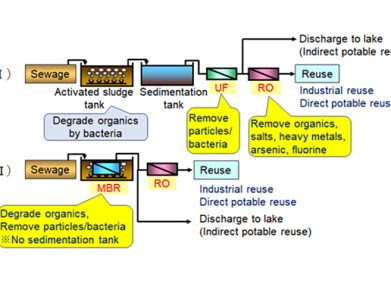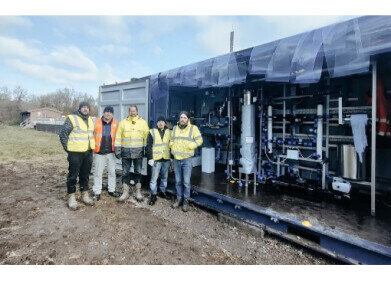Water/Wastewater
What Killed 10,000 Fish in Northumberland?
Jun 23 2017
A recent pollution incident in one of the north-eastern England’s most beautiful and popular holiday spots has resulted in the deaths of 10,000 fish. The catastrophe happened after over 3,000 litres of liquid fertiliser were accidentally spilled into Long Nanny stream in Northumberland, which ultimately reaches Beadnell Bay beach.
Despite the damage wrought on the animal kingdom, authorities were quick to downplay the effect that the incident would have on humans, claiming it was “not a risk” to local drinking water supplies.
Environmental Agency on the scene
Within hours of the spillage, the Environmental Agency (EA) were alerted to the danger and arrived on the scene to collect samples from the water and make projections about the impact on local flora and fauna.
They concluded that around 10,000 fish were believed to be affected by the event, but that the pollution had already passed out of the stream and did not pose a further threat to human health, as none of the contamination washed up onshore.
“It is clear a large number of fish have been killed by the pollution and a detailed assessment is underway,” said a spokesperson for the EA. “We’re working closely with Northumberland County Council to support them to consider impacts on the beach, and are keeping Natural England updated. An investigation into the cause of the pollution is also underway.”
Fish under threat
The human impact upon marine life continues to be a cause for concern. A recent study found that persistent, bio-accumulative and toxic pollutants (PBTs) are found in fish populations all over the world, meaning that any fish anywhere on the planet could potentially have been exposed to damaging toxins.
This latest incident in Northumberland further serves to highlight the dangers of human activity, especially when it involves the use of chemicals and artificial substances. The debate surrounding the morality and sustainability of using fertilisers and pesticides rumbles on, with many critics advocating the use of organic fertilisers such as digestate instead.
While the cause of the spillage at Long Nanny stream is still unknown, environmentalists will argue that incidents of this kind are inevitable while we continue to leverage such dangerous substances. Although human health was not jeopardised on this particular occasion, it could feasibly happen next time around.
The fact that Beadnall Bay is such a popular spot with holidaymakers may give more exposure to the issue. Every year, thousands of water sports enthusiasts take to the beach to practice windsurfing, kayaking and scuba diving and though they weren’t prevented from entering the North Sea on this occasion, the spillage highlights the potential for catastrophe in the future.
Events
Apr 22 2024 Hannover, Germany
Apr 23 2024 Kuala Lumpur, Malaysia
Apr 24 2024 Sao Paulo, Brasil
May 05 2024 Seville, Spain
May 13 2024 Munich, Germany













